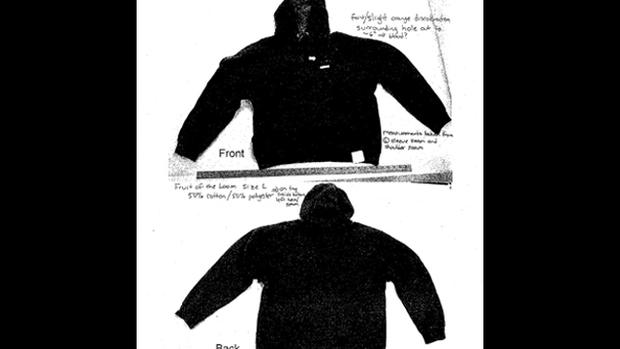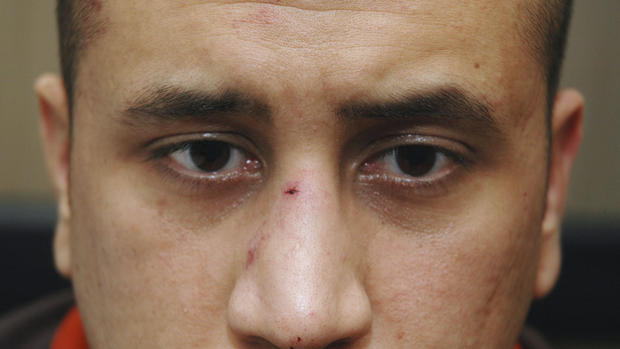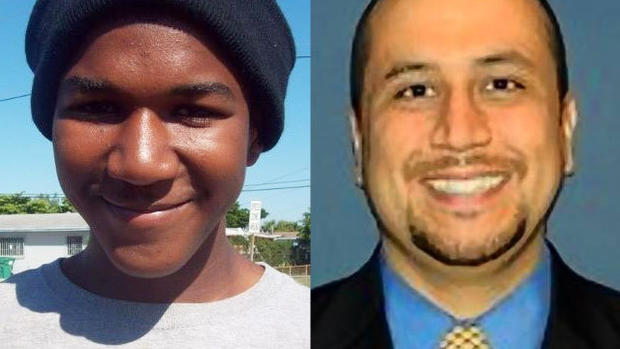Trayvon Martin shooting: One year later
SANFORD, Fla. It's been one year since neighborhood watch volunteer George Zimmerman fatally shot 17-year-old Trayvon Martin in central Florida.
On Feb. 26, 2012, Zimmerman spotted Martin walking through his neighborhood, a gated community, in Sanford. Martin was walking back to a house he was staying at in the community after a trip to a convenience store. Zimmerman started to follow him because he thought the teen looked suspicious. Despite a police dispatcher telling him "you don't have to do that," Zimmerman got out of his truck to pursue Martin, who was carrying nothing more than a beverage and candy in his pocket.
They got into a fight, and Martin was shot. The teen died on the sidewalk.
Zimmerman was eventually charged with second-degree murder but has pleaded not guilty. He says Martin attacked him and that he shot the teen in self-defense. His trial is set for June. He also has a hearing regarding his self-defense claim in April.
At the time of the shooting, the case became a rallying point for civil rights leaders. They said that if Martin had been white, the neighborhood watch leader, George Zimmerman, would have been arrested the night of the shooting. Zimmerman's father is white, and his mother is Hispanic.
In the weeks after the shooting, thousands of people marched through Sanford, demanding Zimmerman's arrest. T-shirts and posters of Martin sold rapidly on Sanford streets. Many public personalities, from professional athletes to congressmen, began sharing pictures of themselves wearing hoodies to show solidarity with Martin after suggestions that the way he was dressed got him killed.
Amid allegations of mishandling the case -- Zimmerman was never formally arrested by police after the shooting -- the police chief in Sanford lost his job.
The protests stopped after Jacksonville prosecutor Angela Corey took over the investigation and filed second-degree murder charges against Zimmerman a month and a half after Martin's shooting.
At the height of the protests last March, national civil rights leaders such as the Rev. Al Sharpton, Jesse Jackson and Ben Jealous had vowed to turn Martin's shooting into a movement addressing equal justice under the law, as well as "stand your ground" laws enacted by states such as Florida that allow people to use deadly force if they believe their lives are in danger. While those issues have retreated somewhat in the national discussion, they haven't in Sanford, where race relations and concerns about traditionally underrepresented communities have moved to the forefront.
- Jamie Foxx joins Trayvon Martin's parents for walk, remembrance dinner
- Judge denies delay in Trayvon Martin case
- Full coverage of the Trayvon Martin shooting from CBSNews.com
Since the shooting, Martin's parents, Sybrina Fulton and Tracy Martin, have founded the Trayvon Martin Foundation, whose goal is to "pursue justice" on behalf of Martin, as well as advocate for amending the controversial "stand your ground" law, and for peaceful conflict resolution.
In an interview on CNN on Monday night, Sybrina Fulton said: "We (want to) make sure that no other parents have to go through what we have gone through in the last year."
Both of Martin's parents have said they got what they asked for when Zimmerman was finally arrested, and that they will accept the outcome of the trial, no matter what it is.
"We just want to have that trial, and let the jury decide," Fulton said. "And whatever decision comes out of that, we're going to accept that. We may not like it, but we're going to accept it."
While Martin has become a rallying point for civil rights leaders, Zimmerman began receiving intense support among conservatives after the shooting, who claimed he was acting well within the law.
In a interview on Sean Hannity's Fox News show back in July, Zimmerman said Martin had intimidated him and initiated the confrontation. Asked if he would do anything differently, Zimmerman said he wouldn't, saying the entire incident was "all God's plan," a comment that drew outrage from Martin's parents.
"We must worship a different God because there is no way that my God would have wanted George Zimmerman to kill my teenage son," Tracy Martin, Trayvon's father, told CBS News.
At the end of the Hannity interview, Zimmerman appeared to backtrack from the "God's plan" quote, saying he misunderstood the initial question. "I do wish that there was something, anything that I could have done that wouldn't have put me in the position where I had to take his life," he said.
Zimmerman's lead attorney, Mark O'Mara, has been pleading for financial assistance recently, especially since the judge in the case refused a request to delay the start of the trial. O'Mara has said Zimmerman's defense could cost up to $1 million.
"The state has virtually unlimited resources to prosecute George," O'Mara said on Zimmerman's defense fund website. "To finance his defense, however, George relies on the generosity of individuals who believe he is innocent."
O'Mara said that Zimmerman's defense fund has raised more than $314,000 since he was charged. Of that amount, $95,000 was spent on bail, almost $62,000 was spent on Zimmerman's living expenses during the past eight months and $56,100 was spent on security. The pricey living expenses were the result of Zimmerman having to stay at extended-stay hotels until he could find a place to rent after his bail conditions were changed to restrict him to Seminole County, Fla., according to the statement on the website said.
Sanford itself has returned to a small slice of normal after their small town came under the hot glare of the national spotlight. Officials are aware, however, that protests and racial tension could return during Zimmerman's June trial or April self-defense hearing. It's then that a judge will decide whether his defense argument is sufficient to allow for the case to be dismissed under the "stand your ground" law.
Weighing on local leaders' minds are the 1992 Los Angeles riots that followed the acquittal of three white police officers in the beating of black motorist Rodney King.
"History has shown it can happen if people feel justice isn't served," City Manager Norton Bonaparte said.
"The community itself is standing fast, waiting to see what happens," Turner Clayton, president of the Seminole County branch of the National Association for the Advancement of Colored People, said this month at a gathering to commemorate what would have been Martin's 18th birthday. "Right now there is a lot of calm throughout the city. ... They're just laidback, waiting to see what goes on. So we'll see."
And while the fervor over the Martin shooting may have calmed for now, Sanford residents point out other problems, such as a recent rash of shootings between rival gangs.
"Unfortunately, there's a lot that's still going on with violence in our community, with violence against other people," resident Marc Booker said. "There's a lot of people trying to pull together and understand that there needs to be unity."


